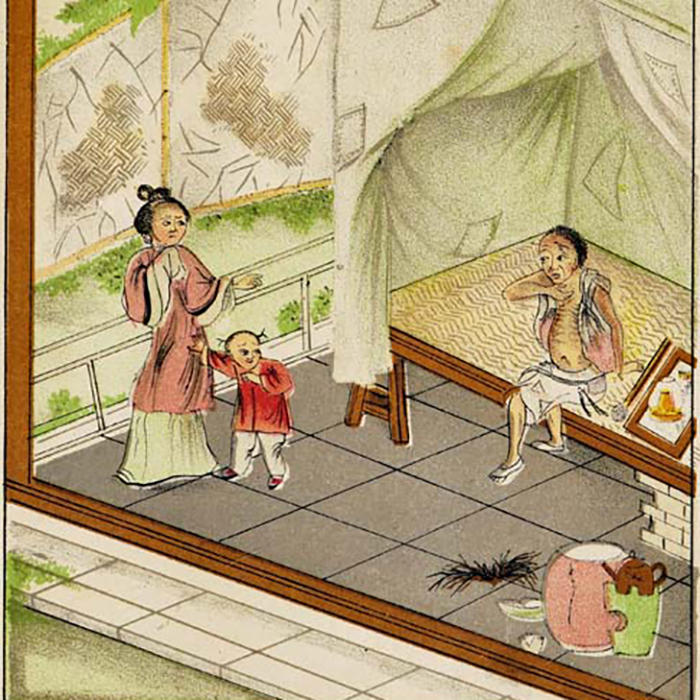Once part and parcel of Asia’s political economy during the age of imperialism, the opium trade wreaked social havoc in China and provoked an international movement toward drug control that endures to the present day.

By Steffen Rimner
For more than one hundred years, China has been waging a War on Drugs. For most of that century, its commitment to fight drug distribution and consumption was ironclad.
The same is true today; China’s most recent public diplomacy has left little doubt that its anti-drug zeal has not abated. In spring 2009, the National Narcotics Commission of China joined hands with the Ministry of Public Security and the Ministry of Foreign Affairs to host seventeen member states of the United Nations Office on Drugs and Crime (UNODC) and the International Narcotics Control Board (INCB).1 Combining public fanfare with diplomatic finesse, the centennial highlighted the International Opium Commission (wanguo jinyan hui) of 1909 in Shanghai as the first-ever anti-drug summit in human history. The one-hundredth anniversary of the birth of global drug control, supported equally by Beijing and the international community, offered ready material for an intrinsically global politics of history, almost like a bait to fish.2
By 2019, only the centennial itself has been relegated to history. The screens announcing an “existing spirit of shared responsibilities and mutual trust”3 have disappeared. So has the carefully choreographed exhibit featuring global drug control as China’s brainchild. Likewise, the Shanghai Declaration, proclaiming Chinese and international cooperation in global drug control, is now gathering dust, devolved into a historical document.4 Most dramatically, even the luster of high office in Chinese drug control did not shield officials from sudden state scrutiny. At the commemoration of 2009, Meng Hongwei gave one of the major speeches as acting vice minister of public security. In 2018, he resigned as chief of Interpol after being arrested by his own government on charges of corruption.... Read more about History's Hatred: China’s War on Drugs and the Power of Past Violence

